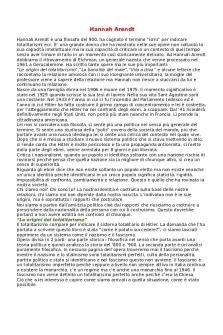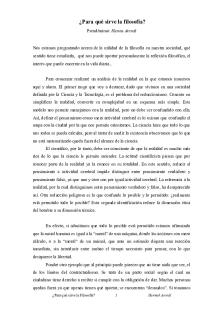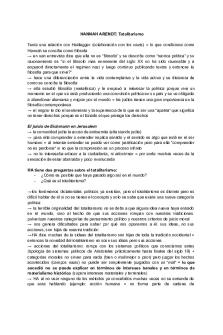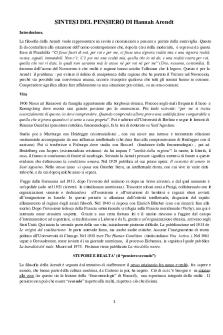“The Robot Condition: Karel Čapek’s R.U.R. and Hannah Arendt on Labor, Technology, and Innovation” DOCX

| Title | “The Robot Condition: Karel Čapek’s R.U.R. and Hannah Arendt on Labor, Technology, and Innovation” |
|---|---|
| Author | Matt Dinan |
| Pages | 28 |
| File Size | 46.7 KB |
| File Type | DOCX |
| Total Downloads | 98 |
| Total Views | 160 |
Summary
1 “The Robot Condition: Karel Čapek’s R.U.R. and Hannah Arendt on Labor, Technology, and Innovation” by Matthew Dinan* St. Thomas University Abstract: This paper reads Karel Čapek’s R.U.R. through the lens of Hannah Arendt’s critique of technology in The Human Condition. Arendt and Čapek share a sus...
Description
"The Robot Condition: Karel Čapek's R.U.R. and Hannah Arendt on Labor, Technology, and Innovation" by Matthew Dinan* St. Thomas University Abstract: This paper reads Karel Čapek's R.U.R. through the lens of Hannah Arendt's critique of technology in The Human Condition. Arendt and Čapek share a suspicion that modernity's attempts to overcome labor through the use of technology undermines the human condition of natality. Indeed, the revolt of Čapek's Robots dramatizes Arendt's warnings of the dangers of a "society of laborers without labor" and "world alienation." Both thinkers suggest that the dilemmas posed by modern technology cannot be resolved through "practical" means, but require loving attentiveness to the fragile conditions in which genuine natality can emerge. Introduction Karel Čapek's 1920 play R.U.R. (Rossum's Universal Robots) is an early and important work of science fction, notable for its coinage of the word "robot" to refer to androids or "artifcial people."1 While R.U.R. had immediate and signifcant literary infuence and its inauguration of the "robot revolt" trope in literature has garnered much scholarly attention,2 scholars interested in the questions of political philosophy also emphasize the play's seemingly overt Hegelian and Marxist themes (Kinyon 1999, 380- 2; Abrash 2014, 89). Indeed, the play's titular Robots gain self-consciousness through a rather on-the-nose struggle to the death reminiscent of the Phenomenology of Spirit's master-slave dialectic, while the violent revolt of the alienated Robot workers seems inspired by Marx's revolutionary "proletarian movement." Although Kinyon argues that Čapek does not ofer any clear "escape" from the ethical systems of German Idealism (Kinyon, 1...
Similar Free PDFs

Hannah Arendt - resumen libro
- 2 Pages

Hannah Arendt riassunto storia
- 6 Pages

Hannah arendt - asdfg
- 4 Pages

We refugees – Hannah Arendt
- 4 Pages

Technology and The Communication
- 11 Pages
Popular Institutions
- Tinajero National High School - Annex
- Politeknik Caltex Riau
- Yokohama City University
- SGT University
- University of Al-Qadisiyah
- Divine Word College of Vigan
- Techniek College Rotterdam
- Universidade de Santiago
- Universiti Teknologi MARA Cawangan Johor Kampus Pasir Gudang
- Poltekkes Kemenkes Yogyakarta
- Baguio City National High School
- Colegio san marcos
- preparatoria uno
- Centro de Bachillerato Tecnológico Industrial y de Servicios No. 107
- Dalian Maritime University
- Quang Trung Secondary School
- Colegio Tecnológico en Informática
- Corporación Regional de Educación Superior
- Grupo CEDVA
- Dar Al Uloom University
- Centro de Estudios Preuniversitarios de la Universidad Nacional de Ingeniería
- 上智大学
- Aakash International School, Nuna Majara
- San Felipe Neri Catholic School
- Kang Chiao International School - New Taipei City
- Misamis Occidental National High School
- Institución Educativa Escuela Normal Juan Ladrilleros
- Kolehiyo ng Pantukan
- Batanes State College
- Instituto Continental
- Sekolah Menengah Kejuruan Kesehatan Kaltara (Tarakan)
- Colegio de La Inmaculada Concepcion - Cebu










